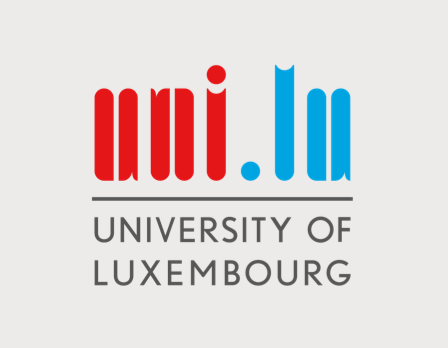Scheduling our emails by day and tuning in to Netflix at night — it is certainly difficult to imagine a world without computers in our tech-driven era. However, no matter how useful, the devices we use to stay connected are vastly different from those used to solve bigger problems in areas such as science, research and business. This includes exploring the origins of the universe, innovating new cancer drugs, running simulations before physically building microchips, or even offering us personalised suggestions before streaming our favourite shows.
Enter High Performance Computing (HPC) devices. HPC devices can perform quadrillions of calculations per second, compared to the three billion calculations per second that laptops or desktops with three GHz processors can. They can process data in real-time more effectively than traditional devices. To stay ahead of the competition, more organisations — big and small — are recruiting professionals with the know-how to develop and navigate lightning-fast, highly-reliable IT infrastructures that can process, analyse, and store the information they need.

Source: University of Luxembourg
Levelling up with these skills has never been easier thanks to the University of Luxembourg. In light of an ever-changing world that is only becoming more digitised by the minute, this dynamic institution has made HPC one of its top priorities. However, its journey to respond to the growing needs for increased high-powered computing and storage began in 2007. By 2020, it had invested tens of millions of euros into its own HPC facilities.
The University currently boasts a multidisciplinary team dedicated to HPC — over 650 data scientists, engineers, designers, physicists, material scientists, biologists, bioinformatics, historians, and economists use HPC. They continuously gain expertise and knowledge to run computations, sustaining research excellence while achieving faster time-to-solution.
In terms of facilities, the University’s HPC facility currently features two supercomputers (Iris and Aion), totalling a computing capacity of 2,76 PetaFlops and a shared storage capacity of 10,68 PetaBytes. This makes the University of Luxembourg’s HPC facility one of the major actors in HPC and Big Data for the Greater Region Saar-Lor-Lux. All usage is overseen by an expert team under the responsibility of Dr. Sebastien Varrette — a renowned research scientist who specialises in Distributed Platforms Security and HPC/Cloud systems.

Source: University of Luxembourg
It’s little wonder why in October 2021, the European High Performance Computing Joint Undertaking (EuroHPC JU) — a joint initiative between the EU, European countries, and private partners to develop a World Class Supercomputing Ecosystem in Europe — selected a consortium of European partners, led by the University of Luxembourg, to – EUMaster4HPC. Set to be launch this Autumn, courses will be offered to students with outstanding career perspectives in the rapidly expanding field of supercomputers.
Pascal Bouvry, University of Luxembourg Professor of Computer Science and Head of HPC Infrastructure department, said: “The consortium members are proud and excited to have been chosen to develop this pilot Master’s programme. We will now work with great commitment and energy to implement our proposal that aims to offer first courses in September 2022, and provide added value to society and to students. It is a strategic investment that will support the development of a world-class HPC ecosystem in Europe.”
With a budget of seven million euros, the programme aims to educate students in the design, deployment, operation, and/or the use of current and future generation HPC and HPC-related technologies in Europe. It will also educate experts skilled in driving HPC adoption and knowledge transfer in industry and academia in different strategic domains, bridging the gap between HPC activities in industry and academia.

Source: University of Luxembourg
The new EUMaster4HPC Master Pilot will be designed in a modular structure to facilitate full or partial integration of the modules into new or existing Master’s programmes. Few universities do this — most structure curricula around basic computer science and programming languages. The master pilot will educate students to be able to contribute in areas related to HPC technologies in Europe; educate experts skilled in driving HPC adoption; contribute to Europe’s ability to compete effectively worldwide in HPC; promote a culture of collaboration, synergies and exchanges of best practices among all participating members; enable the sharing of technical, scientific and transversal expertise and knowledge by allowing HEIs, supercomputing centres, CoEs and industry to work together; enhance networking as an essential tool; and develop a mobility scheme encouraging cross-fertilisation, both for students and teachers.
The EUMaster4HPC Master Pilot will be implemented on eight awarding universities (University of Luxembourg, Polytechnics of Barcelona, Polytechnic of Milan, Sorbonne University, KTH, USI, FAU, University of Sofia) based on a new designed curriculum, study plans, materials and methodologies jointly developed by the whole consortium;
There’s never been a better place for this development. Despite its small size, Luxembourg’s tech ecosystem quadrupled from 2018 to 2019 and shows no signs of slowing down. Furthermore, its location at the heart of Europe — between Germany, France and Belgium — only adds to its lustre, enabling future HPC students to enjoy strong economic, political and social environments that are ideal for gaining experiential knowledge or launching the next big thing. The application period for EUMaster4HPC is from February 15 to May 15 – you can apply by clicking here.
Follow the University of Luxembourg on Facebook, Instagram, Twitter and YouTube.














